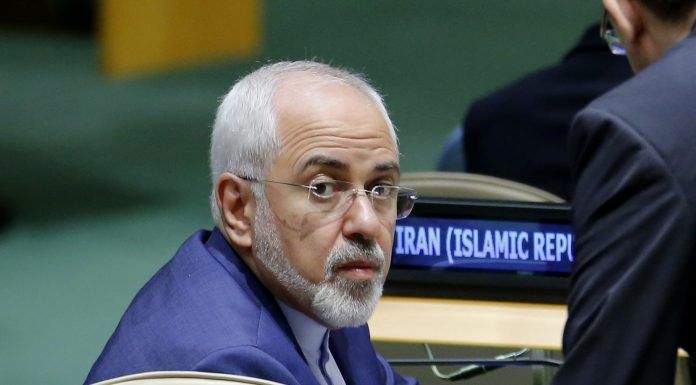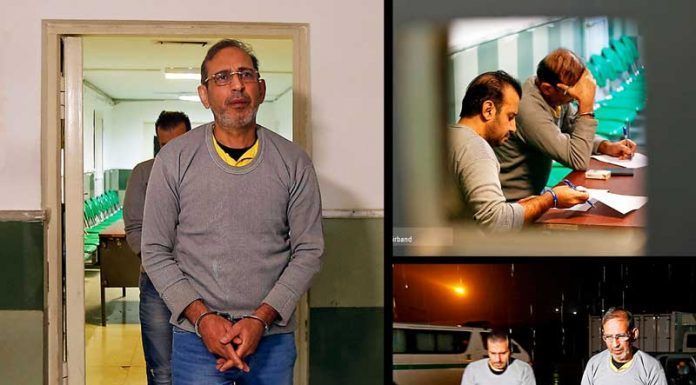By Natasha Phillips
16 Nov – The second round of U.S. sanctions against Iran kicked in on 5 November, generating mixed reactions among Iranians at home and abroad. For now, concerns over their impact on the shipping, oil and banking sectors are still taking a back seat to the ongoing demonstrations inside the country, as Iranians rail against high inflation, economic hardship and entrenched corruption.
• The start of the week saw a sharp burst of online protests around the sanctions. Voices Against Sanctions, a Change.org petition, had racked up over 24,000 signatures by Thursday. The petition was launched by several Iranian celebrities, including Oscar-winning film director Asghar Farhadi and Grammy winner Kayhan Kalhor. A campaign launched on Twitter, called Sanctions Target Me, accuses Donald Trump of lying about the effects of the sanctions on humanitarian aid. Started by Iranian actors Reza Kianian and Parviz Parastui, the campaign had gone viral by midweek. Spotted: Press TV promoting the campaign on their Twitter account with a video, and this tweet: “#SanctionsTargetMe! US sanctions on #Iran are hurting ordinary Iranian patients”.
• Teachers picked up their pens and laptops to raise concerns over the sanctions in an open letter which was signed by over 400 Iranian scholars and students. The letter calls for a comprehensive solution to the current crisis in Iran, as well as wide ranging social reforms. Another open letter signed by almost 200 medical professionals inside Iran and addressed to government officials, describes the declining availability of medicines. Further reports suggest that a lack of guidance on how to trade with Iran for the purposes of securing humanitarian aid has left some countries unwilling to engage. Debate over whether sanctions are to blame for the depletion of goods and services rages on.
→Link to the source
• Open Letters are the medium of choice this week, as a third letter doing the rounds calls on EU officials to stop supporting the Iranian government, saying that its efforts to assist the Islamic Regime are misplaced and will do nothing to improve the behavior of its officials. Signatories include a UNESCO advisor and several activists who have been persecuted by the Iranian government for their points of view. The EU has been frantically trying to find a way around the sanctions to keep Iran at the negotiating table. Attempts have included a financial package geared towards keeping the nuclear deal alive and special purpose vehicles to keep trade lines open with Iran. The lack of movement here is frustrating oil executives and businessmen, who are starting to think that the European Union’s attempts at helping the country’s troubled economy are nothing more than symbolic gestures to show its support for the nuclear deal, and to keep Rouhani close. The EU suffered a further blow to its plans on Thursday as not one member state wanted to host the Special Purpose Mechanism needed to bypass U.S. sanctions.
→ Link to the source
• Iran’s economic woes though, predate the sanctions, which are only compounding the country’s own economic problems. In a show of solidarity, educators around the country held the first of two nationwide strikes in October, over non payment of their salaries. The second round of strikes are scheduled for 22 and 23 November. Truckers, now in their fourth round of strikes, have covered over 70 cities in a bid to raise awareness around the shortage of tires, spare parts and transport fares. They’re hoping to lend their support to firefighters, taxi drivers and bus drivers, which could see the strikes ramp up in the next few weeks. Drivers have not been deterred by government threats to imprison them for demonstrating. More than 250 truckers have been arrested since September.
→ Link to the source
• It hasn’t been a good week for Iran’s Minister of Foreign Affairs. A surprise confession left political analysts scratching their heads on Tuesday, after Zarif told Iranian news outlet Khabar Online that money laundering in Iran was widespread. Zarif’s announcement may have been intended to address criticisms over a controversial bill tackling the financing of terrorism, which Iranian officials say they will sign as long as they can be removed from an international Financial Action Task Force blacklist. The whole affair has increased tensions between Iran’s Reformists and hard-liners, but Zarif’s confession infuriated the latter, who are calling for his resignation, and impeachment. The Islamic Revolutionary Guard Corps (IRGC) wasn’t too happy, either. Javan, a conservative newspaper linked to the IRGC, issued the Minister a warning, “Slow down, Mr. Zarif! The enemy is lurking”.
→ Link to the source
• Iranian authorities have been cracking down on financial misconduct inside the country, arresting 130 people for laundering money inside the foreign exchange market. On Wednesday, authorities executed two men accused of economic crimes. The Iranian judiciary’s website, Mizan, mentions Vahid Mazloumin, nicknamed the “sultan of coins” by some news outlets, as the trader accused of manipulating the currency market. The Iranian Students’ News Agency says he was allegedly caught with two tons of gold coins. Mizan reports that the second man was a member of Mazloumin’s network and was involved in the sale of gold coins. Both men were convicted of “spreading corruption on earth,” a capital offense under Iran’s Islamic laws.
→ Link to the source
• Iran is one of only a few countries around the world which still actions the death penalty, and the second most prolific executioner, after China. Our fourth, and last, letter this week, outlines concerns over eight environmental activists arrested and imprisoned on spying and corruption charges, over eight months ago. Signed by more than 1,100 university professors and environmental activists, the letter was sent to the head of Iran’s judiciary, Sadeq Ardeshir Larijani, asking for the “preservation of human dignity” of the prisoners, as well as “complete transparency” and the need to observe the principles of a right to a proper defense and a fair trial. High profile environmental figures, academics and experts were among those who signed the letter. The IRGC arrested the individuals in February 2017, and charged them with spying and inciting corruption, under Article 286 of the Islamic Penal Code.
→ Link to the source




